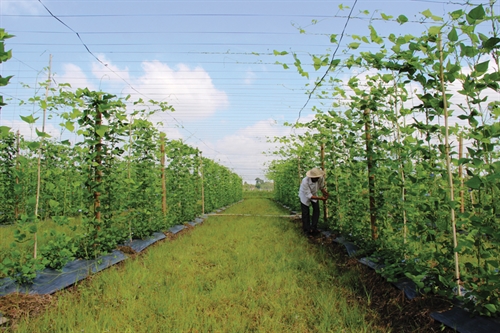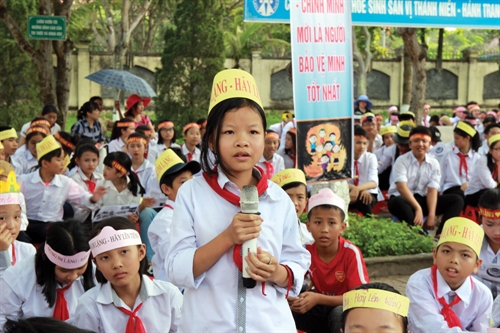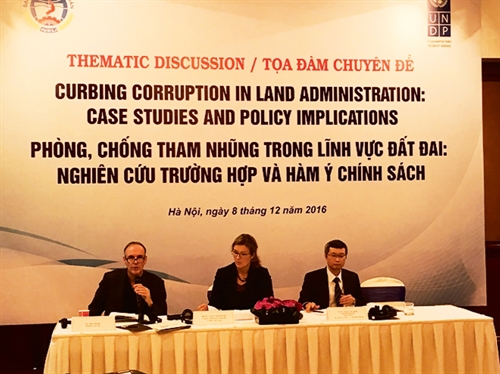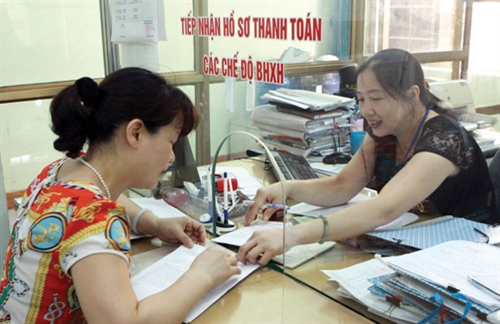Pham Duy Khuong
Lawyer, founding partner of SB LAW
After suspending the 2015 Penal Code from taking effect for one year, the National Assembly passed on June 20, 2017, the Law Amending and Supplementing a Number of Articles of the Penal Code, in which the crimes against intellectual property rights (IPRs) have been significantly amended and will come into effect from January 1, 2018.
Compared to the 1999 Penal Code (the 1999 Code), which has been revised under the Law Amending and Supplementing a Number of Articles of the Penal Code dated June 19, 2009, the 2015 Penal Code (the 2015 Code) removes the crime of violating the regulations on grant of industrial property protection titles. The lawmakers realized that it is not necessary to criminally punish persons who are competent to grant protection titles for industrial property objects in Vietnam. Therefore, from the effective date of the 2015 Penal Code (January 1, 2018), violating the regulations on grant of industrial property protection titles will not be treated as a crime.
The 2015 Penal Code has two articles prescribing two crimes against IPRs, including acts infringing upon copyright and related rights and industrial property rights, namely:
- Infringement of copyright and related rights: Reproducing works, phonograms or video recordings, and distributing to the public copies of works, phonograms or video recordings;
- Infringement of industrial property rights: Counterfeiting trademarks or geographical indications which are currently protected in Vietnam.
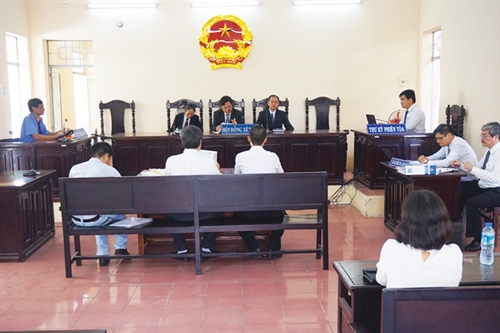 |
| Long An provincial People’s Court conducts first-instance trial of the case involving an intellectual property rights dispute between Bayer SAS and An Nong Co., Ltd.__Photo: https://baolongan.vn |
There are two major differences in the lawmaking technique between the 1999 Code and the 2015 Code as follows:
Penal liability of corporate legal entities
From January 1, 2018, a corporate legal entity must bear the penal liability for a crime on the following conditions: (i) such crime is committed in the name of the corporate legal entity; ii) such crime is committed in the interests of the corporate legal entity; and iii) such crime is committed under instructions or approval of the corporate legal entity; and iv) the statute of limitations for prosecution against such crime has not expired.
A corporate legal entity must bear the penal liability for infringing upon copyright and/or related rights or rights to a trademark or geographical indication.
This is very significant for combating IPR infringements because the practice of handling IPR infringements over the past 11 years has shown that most of such infringements have been committed by corporate legal entities established and operating mainly for the purpose of infringing upon the IPRs protected in Vietnam. However, the sanctions meted out by the Law on Handling of Administrative Violations are not tough enough for deterring infringers. In many cases, infringers are willing to pay fines in order to continue taking IPRs-infringing actions. Under the 2015 Code, a corporate legal entity shall be subject to many penalties, including suspension from operation, permanent shutdown, ban on operating in certain fields, and ban on capital raising, which are severe enough to prevent infringers from relapsing into infringement.
More explicit signs of crimes against IPRs
In addition to using the sign “on a commercial scale”, which has not yet been clearly guided until now, to treat an infringing act as a crime, as in the same manner with the 1999 Code, the 2015 Code prescribes other signs for identifying crimes against the IPRs, including (i) illegal profits earned, (ii) loss/damage caused to copyright, related rights, trademark or geographical indication owner, and (iii) amount of infringing goods. Besides, criminal or administrative violation records of infringers will be used as a basis for handling their infringements.
However, further statutory improvements should be made to better ensure the implementation of the 2015 Code’s provisions on crimes against IPRs as follows:
- The sign “on a commercial scale”, which was used for identifying crimes against IPRs in the 1999 Code (revised in 2009) in conformity with the relevant treaties to which Vietnam is a member state, remains vague due to lack of guiding provisions. As a result, many IPRs infringement cases could not be criminally handled.
- The sign of “illegal profits” earned from infringements also lacks guiding provisions in order to serve as a basis for criminal proceedings. It should be noted that “illegal profits” is different from “illegal gains” defined in Article 37 of the Law on Handling of Administrative Violations and Circular 149/2014/TT-BTC.
- The sign “loss/damage caused to the right holder/owner” was mentioned in Decree 105/2006/ND-CP (amended by Decree 119/2010/ND-CP). The problem is that in order to determine “loss/damage caused”, evaluation by an examiner of an evaluation organization is required. However, at present only Vietnam Intellectual Property Research Institute (VIPRI) provides evaluation services in the field of industrial property rights. In the field of copyright and related rights, there is no official evaluation service provider. Therefore, an evaluation organization for copyright and related rights should be established as soon as possible to officially measure losses or damage caused to copyright and related rights holders.
| According to the Ministry of Science and Technology, more and more IPRs infringements have been detected over the past years in Vietnam. Complicated infringements against protected well-known marks have been reported in various fields from clothing, cigarettes, food and beverage to all kinds of industrial machinery. Counterfeit products have been publicly sold on the market at half or even one third of authentic products’ prices. During 2012-15, the responsible state bodies accepted 18,329 cases showing signs of intellectual property infringement, imposed administrative fines of a total of VND 73 billion; and prosecuted 196 defendants in 120 cases involving crimes against the IPRs. However, only 140 defendants in 84 cases have been indicted by the procuracies.- |
